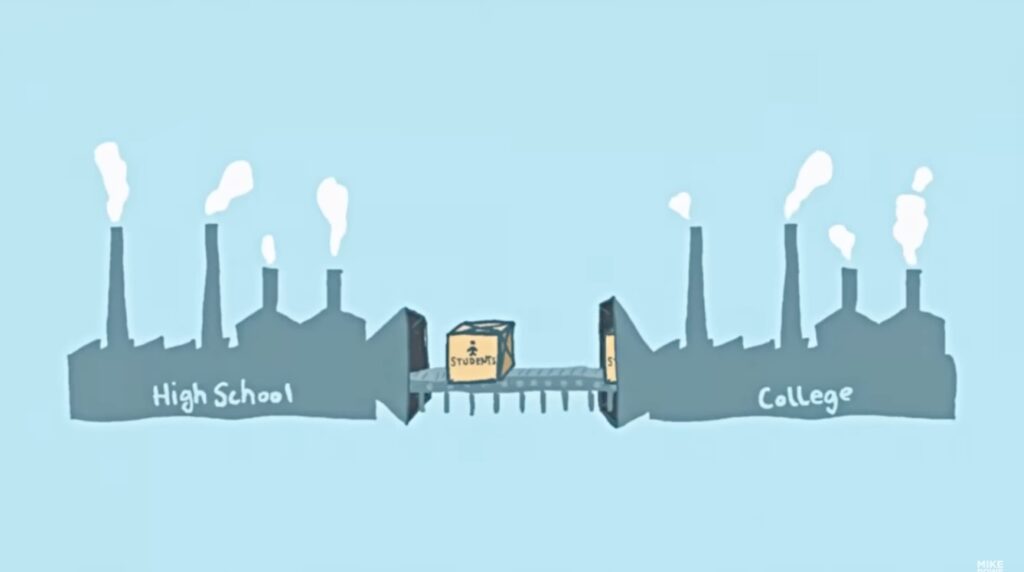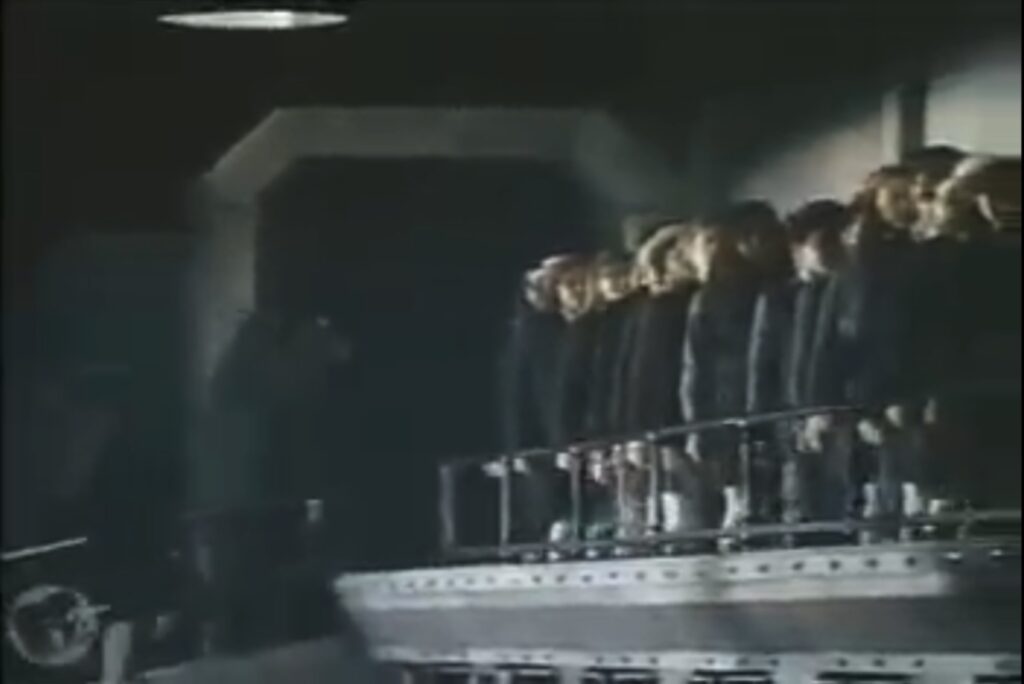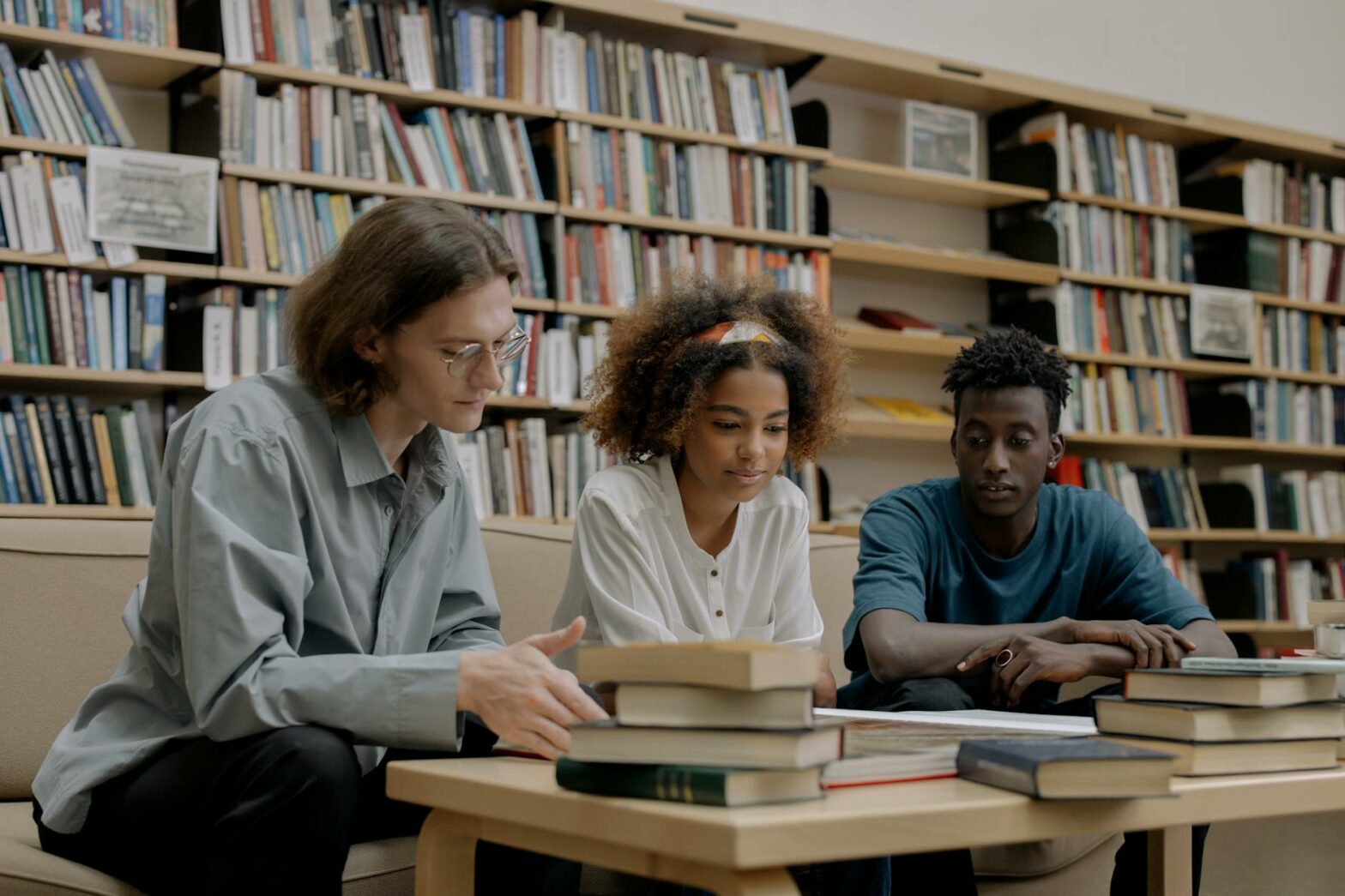Summary
This document offers some news about the state of education in the United States. For background, see Education Report 2023.
Commentary
Some commentary is found at the bottom of this document. A challenge faced by education institutions and educators is the push-back from competing extremist factions of society. The history and context of this is provided below the news excerpts.
News
Below are selected news stories to examine trends in education. This document was created on 24 Apr 2024, and will be updated with more content going forward.
ABC News (28 Apr 2024)
“High school seniors choosing between traditional college or trade schools” — As tuition and other costs for a four-year college degree soar, many Gen Zers are staying away from traditional colleges and joining trade schools and apprenticeships. [View]
CNN News (28 Apr 2024)
“Fareed Zakaria: Colleges are not the communities they once were” — CNN’s Fareed Zakaria shares his take on the pro-Palestinian protests at major US universities, and the broader issue behind the turmoil on campuses. [View]
CBS News (23 Apr 2024)
“More teachers are quitting, and those who remain aren’t happy, researchers say” — Teachers are in short supply in the U.S., and researchers say there’s declining job satisfaction among those who remain. CBS News reporter Bo Erickson examines what’s behind the problems. [Source]
ABC News (2 Apr 2024)
“What is being done as cost of higher education in U.S. continues to rise” — Four universities in Massachusetts will cost over $90,000 to attend in the 2024-2025 school year. Meanwhile, the average household income in Massachusetts is $93,000. [Source]
CNN (30 Mar 2024)
“As college cost passes $90K, ‘the middle class is losing ground'” — The price of college just surpassed $90,000 per year at several prestigious universities. CNN’s Michael Smerconish speaks to Princeton Professor Frederick Wherry about the effects steep tuitions have on the middle class. [Source]
CBS (4 Mar 2024)
“Could higher salaries solve the U.S. teacher shortage?” — The U.S. Department of Education says there’s a shortage of teachers across the nation, with 40 states reporting public school staff levels that are lower than they were before the pandemic. Daniel Pink, contributing columnist at The Washington Post, joins CBS News to examine what can be done to end the shortage. [Source]
ABC Des Moines (26 Feb 2024)
“How is Des Moines Public Schools handling its teacher shortage?” — DMPS expects to lose anywhere between 200 to 250 educators due to various reasons. This comes with growing classrooms and a more diverse student body. [Source]
GMA (21 Feb 2024)
“What’s behind the substitute teacher shortage nationwide” — Schools across the country are struggling to find replacements when teachers call in sick. [Source]
Mike Rowe (30 Jan 2024)
“Mike Rowe warns there’s a ‘giant reckoning’ coming for higher ed” — MikeRoweWorks Foundation CEO Mike Rowe examines problems facing American families when paying for child care and considering higher education. [View]
PBS (27 Jan 2024)
“What’s driving a special education teacher shortage and how schools are responding” — More than 7.5 million American students have disabilities that qualify them for individual education plans. But teachers trained in this critical area are in short supply. Special education teachers and administrators share how the shortage is affecting them, and John Yang speaks with Kimber Wilkerson, professor of special education at the University of Wisconsin-Madison, to learn more. [Source]
Mike Rowe (17 Jan 2024)
“Todd Rose Schools Mike Rowe on How to Fix Our Broken Public Education System” — On this special edition of “The Way I Heard It with Mike Rowe,” high school dropout turned Harvard professor Todd Rose schools me on how America’s quest for efficiency led to our factory-based, one-size-fits-all public education system and how focusing on individuality, instead of cookie-cutter advice, can bring fulfillment in work and life. [Source]
Note: Mike Rowe is perceived as being very vocal about flaws within present-day higher education and public education systems. Rowe emphasizes respect for those who work in the trades. He points out the improved financial returns with vocational training compared to a classical liberal arts education. Below, the context of education criticism is elaborated on.
Context of Criticism
Education institutions have been the focus of criticism from people on “the left and the right” for many years. This is an important backdrop to the challenges faced by educators and the education system today.
In the Mike Rowe video above from 17 Jan 2024, Todd Rose describes public education in the following way, “They denigrated individuality. People are interchangeable parts. … We’ve gotten a lot of efficiency out of it. We’ve got a lot of material abundance. But it’s cost us our soul, and we’re left in this place now where kids go through the same factory-based education system.” [Source: Mike Rowe Video at 17m 13s, 17 Jan 2024]
His description of a “factory-based education” system is accompanied by the illustration below.

Portraying public education as a factory designed to produce uniformly brainwashed clones is not new.
The 1979 movie “The Wall” portrays public education as a factory where children are moved along a factory assembly line as they are indoctrinated. Here is a still image from the video clip which is further down the page.

Critics on the Left
In decades past, liberals and progressives have viewed K-12 and higher education institutions as being too aligned with conservative, corporate, and government interests — reinforcing mindless obedience to authoritarian leaders. For this reason, college campuses tended to be a popular venue for protests and demonstrations involving anti-war themes and various other progressive concerns.
During the 1960s and 1970s, public education was critiqued as being authoritarian, institutional, oppressive, indoctrinating, designed to produced uniformly obedient robotic-like workers for factories and traditional 9-5 jobs needed for maximizing profits. Independent thinking, creativity, and individuality are squashed out and viewed as negative non-desirable attributes.
Administrators and teachers were depicted as oppressive and demeaning, using corporal punishment when considered necessary. They were viewed as the enforcement agents of a broader conservative strict culture, as depicted in the music video Another Brick in the Wall, Part 2 (“We Don’t Need No Education”) from the 1979 musical “The Wall” by Pink Floyd shown below.
Education criticism is well summarized by the above clip. The ending turns rebellious and violent as the students throw their wooden desks and chairs into a pile and light them on fire.
The image of school children rebelling and destroying their school is not a new one. In 1972, Alice Cooper released the song “School’s Out for Summer” that had the refrain: “School’s out for summer. School’s out forever. School’s been blown to pieces” … “No more pencils, no more books. No more teachers, dirty looks.”
Someone on YouTube combined the Alice Cooper song with the video segment from The Wall and the result is astonishing. [View]
Critics on the Right
Prominent in the post-2016 conservative movement, a popular narrative today regarding K-12 and higher education institutions is that they are “the enemies of the people” — being grouped in with members of the media, librarians, poll watchers, late night talk show hosts, the deep state, “leftists” and other imagined enemies.
Today’s conservative portrayal of public education depicts institutions and instructors as wanting to train young people to become liberals.
As a result of this conspiracy theory, funding of education is being cut significantly. Wherever possible, conservative policies and ideologies are being advanced in public institutions.
Yet, from a conservative perspective, higher education institutions erode conservative ideology. As a result, there is much criticism of higher education including speculation that the value of a degree will continue to decline.
Home Schooling
For many years, home schooling was embraced by parents who believed public education was too conservative, too liberal, and/or too secular. It offered an opportunity for parents to indoctrinate their children according to their own beliefs. For those who are bigoted toward “the other” it was a way to become isolationist according to their preferred arbitrary grouping of people.
With home schooling, if the parents are ethical, smart, kind, creative, and compassionate citizens, the outcomes may be very good. If the parents are bigoted, hateful, fearful, and lacking the intellect to educate others, the outcomes may be undesirable.
In general, a public interest in home schooling could reflect problems (or perceived problems) with public education.
Overall, the outcomes of home schooling seem to be quite good according to some anecdotal stories. The teacher to student ratios are much better than traditional schools. There is an opportunity to offer a personalized curriculum. Each student learns at their own pace, using the methods that work best for them.
Education at Scale
Whether it is home schooling, private schooling, or public schooling, if the class sizes are small, and the curriculum is personalized to the individual student, there can be good results. One may feel a bit closer to their classmates in a smaller class.
Whenever we attempt to take a product or service and offer it “at scale” we find individualism and personalized experiences are hindered.
Huge companies no longer have personalized customer service. To handle the large-scale of distribution and delivery, automaton and AI is required.
This is early why people complain about large institutions. It’s simply that anything made so big tends to lose quality.
Institutionalized education is society’s effort to provide consistency and equity for accessible learning to everyone in society. The standardization is required to ensure similarly equal services and outcomes are delivered and achieved.
Don’t Criticize Education
Regardless of what social or political group you belong to, try not to get sucked into the group-think of negative portrayals of education.
Vocational training and traditional liberal arts education can be valuable for individuals and society. We’re all generally doing the best we can do help people grow and be better equipped during adulthood for life and career success. Let’s all do our part to help promote the best that education services can offer.
Given the convergence of criticism that educators are facing, it’s even more important for allies of education to be supportive.
